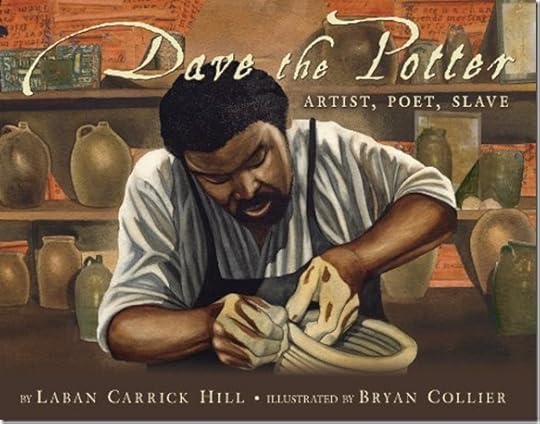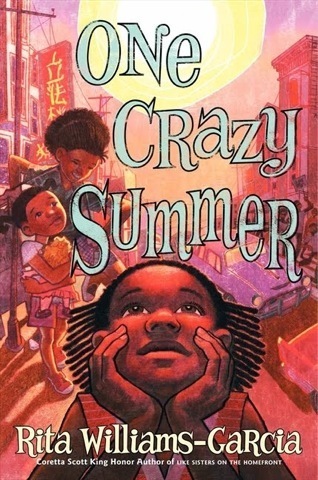Zetta Elliott's Blog, page 96
January 23, 2011
Nora
This is one of the most beautiful films I've seen recently—about the life of Zimbabwean dancer Nora Chipaumire:
"Nora" is based on true stories of the dancer Nora Chipaumire, who was born in Zimbabwe in 1965. In the film, Nora returns to the landscape of her childhood and takes a journey through some vivid memories of her youth. Using performance and dance, she brings her history to life in a swiftly-moving poem of sound and image. The result is a film about family dramas, difficult love affairs and militant politics, which moves back and forth between the comic and the tragic, the joyful and the mournful. It is a film about a girl who is constantly embattled – struggling against all kinds of intimidation and violence – but who slowly gathers strength, pride and independence. Shot entirely on location in Southern Africa, "Nora" includes a multitude of local performers and dancers of all ages, from young schoolchildren to ancient grandmothers, and much of the music is specially composed by a legend of Zimbabwean music – Thomas Mapfumo.
And here's a video I found on You Tube about the making of the film:








January 22, 2011
3K
I should be exhausted, but I'm not. I've written more than three thousand words today, and I'm not done yet! All week I've been trying to write, and every night I would fall asleep on the couch, wake at 4am, and unsuccessfully try to fall back to sleep in my bed. On Wednesday I woke with a stabbing pain in my left shoulder but I didn't want to get back up to take some painkillers. So I pressed my eyes shut and tried to sleep but, of course, the pain kept me awake. And as I lay there I basically wrote my novel—in my head. I saw the scenes unfold, one after the other, and I've spent the whole day trying to write it all down. The TV's been on, too…I watched Power Paths, a brilliant documentary about several Native American tribes in the southwest and the Plains who mobilized to bring green energy to their reservations and the region. When I needed a TV break I played Oro, the latest album by ChocQuibTown, over and over and over even though I have no idea what they're saying since they rap/sing in Spanish. Then the TV came back on and I saw an infomercial for a compilation of music from the '70s, which sent me in search of this song:
It's a wonder I got *any* writing done, as easily distracted as I am. But it isn't writing, really. It's more like transcribing. I've seen the scenes, so all I have to do is write it down…








January 21, 2011
I'll do it, by George!
 I've tried—I really have tried to decolonize my imagination. But try as I might, I just can't seem to keep the British out of my head! It doesn't help, of course, that I watch Britcoms on PBS and Masterpiece Theatre every Sunday night, and Mystery, and Doc Martin, and BBC news is on the television right now…I write with the TV on (bad, I know) and the other day I gasped when I re-read some of my novel and found that my characters sounded BRITISH. As much as I fuss about having to read The Phoenix and the Carpet when I was 8, I now find that MY magical talking bird sounds a lot like Nesbit's snooty bird. Sigh…then this afternoon I went to see The King's Speech and it felt like indulging in a guilty pleasure. All I needed was a cup of tea and a butter tart and my betrayal would have been complete! (Rosa did provide a raspberry jam thumbprint cookie, which is close enough) Some days I wonder if I even have a choice about the things that I love; sure, I was conditioned from birth to admire all things British, but I'm no longer a child. Is there a way to appreciate those things without ambivalence? I guess that's the postcolonial quandary. Anyway, the writing's going really well (nearing 18K), I accepted an exciting teaching opportunity for this spring, and I have an out-of-state interview next week. It's snowing again, but I'm ready to write: just filled up on leftover Indian food and there's a pint of ice cream waiting in the wings…
I've tried—I really have tried to decolonize my imagination. But try as I might, I just can't seem to keep the British out of my head! It doesn't help, of course, that I watch Britcoms on PBS and Masterpiece Theatre every Sunday night, and Mystery, and Doc Martin, and BBC news is on the television right now…I write with the TV on (bad, I know) and the other day I gasped when I re-read some of my novel and found that my characters sounded BRITISH. As much as I fuss about having to read The Phoenix and the Carpet when I was 8, I now find that MY magical talking bird sounds a lot like Nesbit's snooty bird. Sigh…then this afternoon I went to see The King's Speech and it felt like indulging in a guilty pleasure. All I needed was a cup of tea and a butter tart and my betrayal would have been complete! (Rosa did provide a raspberry jam thumbprint cookie, which is close enough) Some days I wonder if I even have a choice about the things that I love; sure, I was conditioned from birth to admire all things British, but I'm no longer a child. Is there a way to appreciate those things without ambivalence? I guess that's the postcolonial quandary. Anyway, the writing's going really well (nearing 18K), I accepted an exciting teaching opportunity for this spring, and I have an out-of-state interview next week. It's snowing again, but I'm ready to write: just filled up on leftover Indian food and there's a pint of ice cream waiting in the wings…








January 20, 2011
a family affair
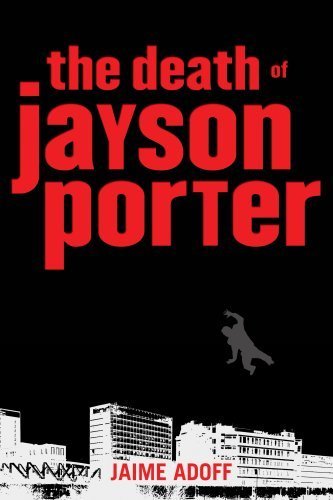 What luck! In my mailbox today I found a copy of Arnold Adoff's latest book, Roots and Blues—then in my inbox, I found his son (with author Virginia Hamilton), Jaime Adoff, had sent me these answers for today's author interview! If you don't know Jaime's work already, here's an excerpt from his bio:
What luck! In my mailbox today I found a copy of Arnold Adoff's latest book, Roots and Blues—then in my inbox, I found his son (with author Virginia Hamilton), Jaime Adoff, had sent me these answers for today's author interview! If you don't know Jaime's work already, here's an excerpt from his bio:
Jaime's latest young adult novel The Death of Jayson Porter received the 2010 BuckeyeTeen Book Award. It received *starred reviews from *Booklist*, *Library Media Connection*, and *VOYA* magazine,(5Q). It was also selected for the '09 "Choose to read Ohio program," a project of the State Library of Ohio to promote reading across Ohio. As well as an Ohioana Book Award finalist in the Juvenile category.
1. How would you describe your contribution to the field of children's literature?
Well that's a story that's still being told. I gauge my contribution by how children and teens have been affected by my work. Having talked to literally thousands of kids over the course of the last almost ten years, I feel that I am helping. Helping to at least get a dialogue going on some of the life changing and life threatening issues facing young people today, issues such as bullying, suicide, abuse. The emails I receive from young people tell me that I have made a positive contribution thus far. Reviews and awards? Those are a chasing after the wind. It's the kids that count, and that's something I can never forget.
2. You come from a prominent literary family; how does your parents' legacy impact your own writing for young readers?
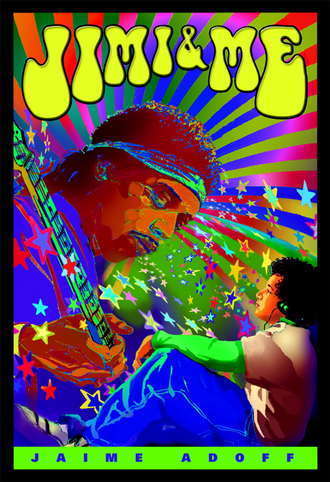 It has impacted me, generally speaking, in a very positive way. I think I hold myself to extremely high standards—some might say impossibly high—due to the bar that was set by my parents. I never feel as though I am in competition, but I do feel a sense of responsibility to carry on the family tradition of creating great books that can stand the test of time. It is a legacy, a legacy that I have embraced. It is a living legacy from which I am constantly drawing from. Sometimes I might write something and it instantly reminds me of my mother or my father. A turn of a phrase, a line here or there. It always makes me smile when that happens. I am blessed to come from such a family and thankful that they were both such loving and supportive parents. I only wish my mother would have lived to see me write professionally. She would have gotten such a kick out of it all!
It has impacted me, generally speaking, in a very positive way. I think I hold myself to extremely high standards—some might say impossibly high—due to the bar that was set by my parents. I never feel as though I am in competition, but I do feel a sense of responsibility to carry on the family tradition of creating great books that can stand the test of time. It is a legacy, a legacy that I have embraced. It is a living legacy from which I am constantly drawing from. Sometimes I might write something and it instantly reminds me of my mother or my father. A turn of a phrase, a line here or there. It always makes me smile when that happens. I am blessed to come from such a family and thankful that they were both such loving and supportive parents. I only wish my mother would have lived to see me write professionally. She would have gotten such a kick out of it all!
3. Can you tell us about your current project(s)? How do you develop such original ideas for your books?
Currently I have multiple projects going. Multiple projects out there in the publishing world looking for homes; multiple projects on my desk waiting to be completed. I have ideas that I've gotten years ago that are still cooking, still trying to make their way to the printed page. Some ideas come over time; some can come in an instant. All take months and years to truly come to fruition, and yes, as you know, many never see the light of day. I have two novels that I am working on that are a bit of a departure for me, incorporating some spiritual and magic realism elements that I haven't used in my prior works. I still maintain the "realism," which I feel is of utmost importance in the work that I do. Real kids—present day teens from diverse backgrounds—going through universal challenges, their voices ringing true to who they are and the lives they lead. I am quite excited about these projects.
4. As a second-generation children's book author, how optimistic are you about the future of publishing? Do you have any advice for the next generation of writers?
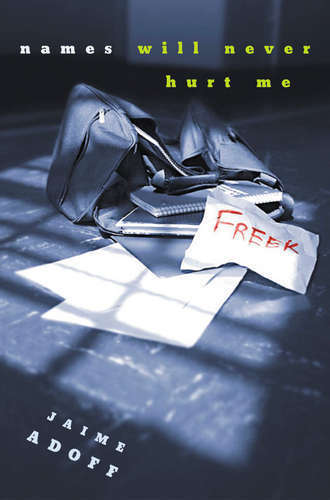 That's a loaded question. Like all fields, publishing is going through some changes now, some growing pains, trying to find its footing in an ever-changing landscape (how was that for politically correct). From my experience, generally speaking, big corporations are slow to act, to react, and to change. They're slow to want to change, but in this instance I think the choices have already been made. The brave new world of publishing is coming at us like a fast approaching train; they've either got to climb aboard or get out of the way. And as we know, since the bottom line is making money, publishers are already figuring out how to get onboard.
That's a loaded question. Like all fields, publishing is going through some changes now, some growing pains, trying to find its footing in an ever-changing landscape (how was that for politically correct). From my experience, generally speaking, big corporations are slow to act, to react, and to change. They're slow to want to change, but in this instance I think the choices have already been made. The brave new world of publishing is coming at us like a fast approaching train; they've either got to climb aboard or get out of the way. And as we know, since the bottom line is making money, publishers are already figuring out how to get onboard.
As for the second part of the question: I think a good story is a good story, a good poem is a good poem, a good novel, poetic or otherwise, is a good novel. Regardless of the format, digital, app, paper, carrier pigeon, those are constants that will always be. Now, there are times when those characteristics are not paramount in the decision-making processes of these companies, and some may say we're in those times right now. Be that as it may, the focus for the next generation of writers should be substance, not delivery method.
5. There is a lot of concern for black boys–their literacy skills, the availability of books featuring black male protagonists. As a biracial/black male writer (and the father of a daughter), how do you feel about the issue of "boys and books"?
I've done quite of few literacy talks and events, many focusing on the issue of boys and books, and specifically African American males and literacy. I think matching the right book with the right kid is one of the keys. Exposing these kids to a wide variety of literature, exposing them to worlds sometimes similar and sometimes different from their own. Having them be able to see themselves in the books that they read is crucial in hooking them, and keeping them hooked on reading. With budget cuts hitting everyone hard, especially those populations that can least afford them, we as educators, writers, and publishers have to work that much harder to make sure we write, publish, and promote these books so that they are getting into the hands of these young people.
 There are never enough books featuring black male protagonists. And that is not for a lack of trying. There are even fewer with biracial protagonists, or Chinese American protagonists or Latinos, etc . . . There are many fine writers of color, many more than most people would think or know about. This lack of knowing goes side by side with the minuscule amount of books being published with diverse protagonists as compared to their white counterparts. It is still a largely white run business, from bottom to top, floor to ceiling. Children's and YA publishing, in my opinion, is still decades behind the rest of the country, and sadly, it's the children and teens of this country who must suffer. Inroads have been made but not nearly enough. It's a struggle, and as my father's tag line states at the end of each of his emails: "The struggle continues . . ."
There are never enough books featuring black male protagonists. And that is not for a lack of trying. There are even fewer with biracial protagonists, or Chinese American protagonists or Latinos, etc . . . There are many fine writers of color, many more than most people would think or know about. This lack of knowing goes side by side with the minuscule amount of books being published with diverse protagonists as compared to their white counterparts. It is still a largely white run business, from bottom to top, floor to ceiling. Children's and YA publishing, in my opinion, is still decades behind the rest of the country, and sadly, it's the children and teens of this country who must suffer. Inroads have been made but not nearly enough. It's a struggle, and as my father's tag line states at the end of each of his emails: "The struggle continues . . ."








January 18, 2011
model minority
 It isn't easy being in the minority. Last night I wrote a chapter about D's foster mother, a white woman who refused to leave her community when "white flight" went into effect. Now she's the only white woman in a black neighborhood, and she fosters black children. Does that make her courageous—or crazy? I'm going for the former.
It isn't easy being in the minority. Last night I wrote a chapter about D's foster mother, a white woman who refused to leave her community when "white flight" went into effect. Now she's the only white woman in a black neighborhood, and she fosters black children. Does that make her courageous—or crazy? I'm going for the former.
Ari sent me a link to The Dirigible Plum, and I wanted to give her a shout-out and express my gratitude for her sincere commitment to supporting authors of color. This children's literature professor is doing everything she can to read more books by PoC, teach them in her classroom, and add them to her library's collection. I'm truly honored that she'll be teaching Wish next year…
I feel like adding more books by authors of color to the syllabi of the courses I teach is one way that I can advocate for authors of color. Depending on enrollment in my courses, that's 30-60 more books that an author sells. I have also started requested more books by authors of color at my local library and purchasing books myself to donate to their collection.
…If anyone ever questions whether awards such as the Coretta Scott King Award or the Pura Belpre Award are necessary, they only need to take a look at the supposedly non-race-focused awards. For instance, of the 52 Printz Winners and Honor books, only 5, as far as I can tell, are by people of color–less than 10%.
When I look at the reading challenges I'm considering for 2011–the Amazon Best Books challenge; Australian Writers challenge; Steampunk challenge; Top 100 YA Novels challenge–how many authors of color are represented on those lists or in those genres?
…A couple of ideas for 2011:
1. Join the POC 2011 Reading Challenge.
2. Create other challenges like a Coretta Scott King or Pura Belpre Award Challenge.
3. Put in more time to research authors of color within the reading challenges I'm already planning to sign up for.
4. Commit to putting at least 75% of my book-buying budget into authors of color. Then consider donating the books to the library.
One more thing you can do to support writers of color is to join Ari's African American Read-In! You've got five great books to choose from, and you can even pick the date for the February discussion. The global read-in is an initiative of the Black Caucus of the NCTE and NCTE.








January 17, 2011
honoring MLK
 I grew up seeing the words of Dr. Martin Luther King, Jr. Before I ever *heard* his "I Have a Dream" speech, I saw a printed, framed excerpt hanging in my grandparents' home. As a teenager, I was very upset when that framed speech went to my older sister; how could my grandmother give it to HER, when *I* was the one invested in social justice? *I* was the one teaching my classmates about the struggle against apartheid. *I* was the one who insisted my American History teacher not exclude the Civil Rights Movement from our class. I couldn't understand my grandmother's decision then, but now it makes perfect sense. I didn't need to have Dr. King's words on my wall. I'd already had my "awakening," but my sister, it seemed, had not. A couple of years later, my sister went away to college and for my birthday sent me this beautiful photograph of Dr. King. We hardly speak these days, but I know she just bought a new condo and I'm sure the framed speech has a place of honor in her new home. I hope those words mean more to her now than they did when we were teens.
I grew up seeing the words of Dr. Martin Luther King, Jr. Before I ever *heard* his "I Have a Dream" speech, I saw a printed, framed excerpt hanging in my grandparents' home. As a teenager, I was very upset when that framed speech went to my older sister; how could my grandmother give it to HER, when *I* was the one invested in social justice? *I* was the one teaching my classmates about the struggle against apartheid. *I* was the one who insisted my American History teacher not exclude the Civil Rights Movement from our class. I couldn't understand my grandmother's decision then, but now it makes perfect sense. I didn't need to have Dr. King's words on my wall. I'd already had my "awakening," but my sister, it seemed, had not. A couple of years later, my sister went away to college and for my birthday sent me this beautiful photograph of Dr. King. We hardly speak these days, but I know she just bought a new condo and I'm sure the framed speech has a place of honor in her new home. I hope those words mean more to her now than they did when we were teens.
Thanks to Qiana for sharing the link that led me to this brilliant clip:








January 15, 2011
be direct/or
 Self-directed study. Self-directed sexuality. I've used these terms in various contexts, but I'm becoming increasingly aware of what it really means to "call the shots." I worked myself into a fury this week over the media coverage of the first anniversary of the earthquake in Haiti. I was raging for days, and then Rosa sent me this link—it's to an organization that's doing really important work in Haiti, and they were featured on PBS last night. With others, Partners in Health is calling for NGOs in Haiti to LISTEN TO THE HAITIAN PEOPLE. Billions of dollars in aid were donated after the earthquake, but we've seen very little progress and the Haitian people are not to blame b/c the money wasn't placed in their hands. International aid is complicated—even here at home, we confront ethical issues when we choose to give to those in need. I remember a friend once telling me that he "grilled" anyone who asked him for change in the street; he would scoff at me as I handed over my spare change—"You know that guy's just going to buy booze with that. Look at his shoes—he's not homeless." He was so sure he knew everyone's backstory—and as the donor, he felt he had the right to sit in judgment over the recipients of his aid. This plays out in the welfare debate, and for centuries the "haves" have been careful to distinguish between the "deserving" and "undeserving" poor. They turned poverty and distress into a moral issue, and then made recipients of aid conform to their sense of what is right and good. I generally donate to Unicef, but I think for the next year I'm going to support Partners in Health; I especially want to support their mental health outreach efforts, since few NGOs seem able or willing to deal with the emotional trauma of the quake victims/survivors. I hope you'll sign the petition to ensure that Haitians have a say and a role to play in the rebuilding of their country. Swaziland sent rubble-crushers—hand crank rubble crushers, which enable individuals to clear the debris that still chokes their neighborhoods. If anyone knows how to send more of those to Haiti, please let me know. The power ought to be placed in THEIR hands. Stand with Haiti.
Self-directed study. Self-directed sexuality. I've used these terms in various contexts, but I'm becoming increasingly aware of what it really means to "call the shots." I worked myself into a fury this week over the media coverage of the first anniversary of the earthquake in Haiti. I was raging for days, and then Rosa sent me this link—it's to an organization that's doing really important work in Haiti, and they were featured on PBS last night. With others, Partners in Health is calling for NGOs in Haiti to LISTEN TO THE HAITIAN PEOPLE. Billions of dollars in aid were donated after the earthquake, but we've seen very little progress and the Haitian people are not to blame b/c the money wasn't placed in their hands. International aid is complicated—even here at home, we confront ethical issues when we choose to give to those in need. I remember a friend once telling me that he "grilled" anyone who asked him for change in the street; he would scoff at me as I handed over my spare change—"You know that guy's just going to buy booze with that. Look at his shoes—he's not homeless." He was so sure he knew everyone's backstory—and as the donor, he felt he had the right to sit in judgment over the recipients of his aid. This plays out in the welfare debate, and for centuries the "haves" have been careful to distinguish between the "deserving" and "undeserving" poor. They turned poverty and distress into a moral issue, and then made recipients of aid conform to their sense of what is right and good. I generally donate to Unicef, but I think for the next year I'm going to support Partners in Health; I especially want to support their mental health outreach efforts, since few NGOs seem able or willing to deal with the emotional trauma of the quake victims/survivors. I hope you'll sign the petition to ensure that Haitians have a say and a role to play in the rebuilding of their country. Swaziland sent rubble-crushers—hand crank rubble crushers, which enable individuals to clear the debris that still chokes their neighborhoods. If anyone knows how to send more of those to Haiti, please let me know. The power ought to be placed in THEIR hands. Stand with Haiti.








January 11, 2011
Jazz in Love!
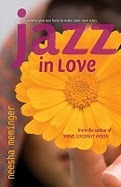 Yesterday was the official release date for
Neesha Meminger
's latest novel, Jazz in Love. It's been getting RAVE reviews all over the blogosphere—check out Lyn Miller-Lachmann's review at
readergirlz,
Ari's take at
Reading in Color
, and
The Rejectionist
has only praise to offer as well. So what are you waiting for?! You can find a list of booksellers that carry Jazz
here
. And don't forget to enter
Edi's giveaway
to win your own copy of Jazz in Love. Busy as she is, Neesha graciously agreed to answer a few questions about the publishing process.
Yesterday was the official release date for
Neesha Meminger
's latest novel, Jazz in Love. It's been getting RAVE reviews all over the blogosphere—check out Lyn Miller-Lachmann's review at
readergirlz,
Ari's take at
Reading in Color
, and
The Rejectionist
has only praise to offer as well. So what are you waiting for?! You can find a list of booksellers that carry Jazz
here
. And don't forget to enter
Edi's giveaway
to win your own copy of Jazz in Love. Busy as she is, Neesha graciously agreed to answer a few questions about the publishing process.Q: You named your new imprint "Ignite," which suggests this is the start of something big! Can you tell us about your decision to self-publish–did you have reservations, and what are some of the risks and/or rewards?
A: Yes! I love the word "ignite," don't you? I won't say it was an easy decision to put JAZZ IN LOVE out on my own. I'd been mulling it over (as you know) for at least a year or so, going back and forth. When it became clear that JAZZ would not make it into the world unless I put it out there, I decided to stop waiting. So far, it has been exhausting (because I do everything myself), fun (because I have more control), humbling (because of all the warmth and support I've received from readers, friends, teachers, librarians, bloggers and the kidlit/YA community at large), revealing (because I would never know about this step in the creative/growth process if I hadn't taken this leap), and extremely rewarding (because my readers–the reason I decided to put JAZZ out on my own to begin with–now have access to another novel – something I would still be waiting for if I had not taken this step.
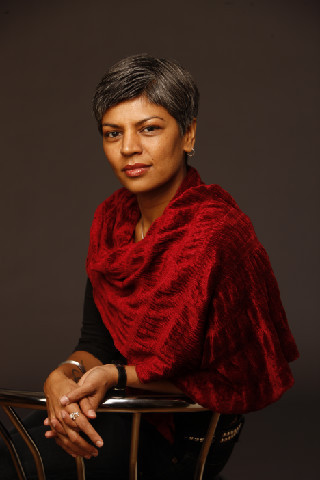 There are lots of upsides and downsides to being both published with a large house and going it on my own, and I've enjoyed both experiences in different ways. Not sure how I'll move forward after this, but for now, the exchange between author and reader can continue without being blocked, or left to wither on the vine. It's the exchange of ideas that's important to me; putting a work out and then participating in dialogue around it, seeing people reflect on their experiences in a new light, reframing things…this is what's rewarding, and what would have remained stalled had I continued to wait. The creative process needs to continue its flow in order to survive, and I was feeling all the creative energy within begin to wane. It's hard (at least for me) to continue to produce creative work without that feedback loop that's so important to creative expression. And I think that was what gave me the final push that I needed – that need to connect with my readers and complete a creative cycle.
There are lots of upsides and downsides to being both published with a large house and going it on my own, and I've enjoyed both experiences in different ways. Not sure how I'll move forward after this, but for now, the exchange between author and reader can continue without being blocked, or left to wither on the vine. It's the exchange of ideas that's important to me; putting a work out and then participating in dialogue around it, seeing people reflect on their experiences in a new light, reframing things…this is what's rewarding, and what would have remained stalled had I continued to wait. The creative process needs to continue its flow in order to survive, and I was feeling all the creative energy within begin to wane. It's hard (at least for me) to continue to produce creative work without that feedback loop that's so important to creative expression. And I think that was what gave me the final push that I needed – that need to connect with my readers and complete a creative cycle. Q: In a guest post for The Rejectionist, you discussed the changes in the publishing industry. You've also written extensively about the need for greater equity when it comes to marginalized voices. When you look into the future, what do you see for yourself as an author/publisher and what does the literary landscape look like?
A: This is a good question, and it's one I think a lot of publishers and authors are asking. The landscape is shifting and changing at such a rapid pace that everyone is stumbling along, trying to keep up. My hope is that the changes will help level the playing field somewhat, that access to resources will allow new voices to emerge and empower authors to take more control over their voices and expressions. More and more quality work is coming out in ebook form and through independently published authors, more readers are buying e-readers like the Kindle, the iPad, and many people are reading books on their handheld devices now. It's an *entirely* different reading landscape than when I sold my first book. At that time, we didn't even think to fight for ebook rights. But we're not just looking at paperback vs. hardcover anymore. We're now dealing with things like DRM, digital rights, and audiobooks in addition to print.
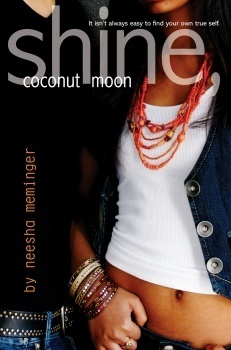 In the past, authors self-published because their work was seen to have no readership – this translates, of course, to their work being of lesser value. W.E.B. Dubois, Terry McMillan, Tyler Perry, Virginia Woolf . . . all these authors self-published at some point in their careers because no one believed their work would sell, in other words, that no one would want to buy it. Who is this "no one," then? Women initially self-published in an industry controlled and dominated by men because women's writing was seen as being too "emotional" by the mostly-male publishers at the time. Again, the perception was that "no one" would want to read such emotional, insubstantial work. The issue is simply that there are certain markets that have never been noticed, acknowledged, or recognized. One of those markets is South Asian teens, and I happen to know it quite well. But if all my books were marketed only to the narrowly-defined markets some publishers are aware of, the books, of course, would perform poorly. It's not the right market for *these* books. It's like the "flesh-coloured bandage." So many publishers use the one-market-demographic-fits-all approach to give books a push. But when authors who know their audience go out and speak directly *to* that audience, there is a rapport. And *that*, to me, is the entire purpose of what I do.
In the past, authors self-published because their work was seen to have no readership – this translates, of course, to their work being of lesser value. W.E.B. Dubois, Terry McMillan, Tyler Perry, Virginia Woolf . . . all these authors self-published at some point in their careers because no one believed their work would sell, in other words, that no one would want to buy it. Who is this "no one," then? Women initially self-published in an industry controlled and dominated by men because women's writing was seen as being too "emotional" by the mostly-male publishers at the time. Again, the perception was that "no one" would want to read such emotional, insubstantial work. The issue is simply that there are certain markets that have never been noticed, acknowledged, or recognized. One of those markets is South Asian teens, and I happen to know it quite well. But if all my books were marketed only to the narrowly-defined markets some publishers are aware of, the books, of course, would perform poorly. It's not the right market for *these* books. It's like the "flesh-coloured bandage." So many publishers use the one-market-demographic-fits-all approach to give books a push. But when authors who know their audience go out and speak directly *to* that audience, there is a rapport. And *that*, to me, is the entire purpose of what I do.I liken it a lot to independent film and music. (The artist formerly known as) Prince was a real inspiration for me when I was younger, because he produced his own first album. No one wanted to touch his music because he was doing stuff that was unusual, innovative, that hadn't been done, and he didn't fit neatly into any predefined niche. So, he just did it on his own. I remember when I first heard that story and, not fully understanding it, admired his chutzpah anyway. But that story is so common in film and music because there are established resources and outlets for independent artists. I think what we're about to see is the de-stigmatization of independent authorship. And that, to me, is very exciting.
Q: You show real daring in Jazz in Love, specifically around issues of sexuality. Now that YOU are calling the shots as editor-in-chief, do you find you're more emboldened/empowered to take risks?
A: It was definitely very different this time around when final say rested on my shoulders. I still struggled with the internal editor in my head, and I did do a round of revisions with an editor, but ultimately, I made the final decision on what would go into the book, what the cover would look like, what the interior design and layout would be. I also knew exactly where review copies would be sent, if and where I submitted to certain awards, which formats I wanted the book released in. And now I know exactly how many copies have sold in each format. I can also make changes if I want to, at any point in the process.
The biggest risk, I would say, has been to write a book that was funny, light (mostly) with romance elements that placed characters of colour at its center, without apology or explanation. I felt very strongly about this. I wanted to write a book that teens could read and enjoy, without worrying incessantly about earning out an advance, without having such a focus on needing to make sales–without that pressure of knowing that if this book didn't sell well I might not get another book deal (and even if it *did* sell well, there would be no guarantee). I wanted to think only about my readers and the story I wanted to share with them – the teens who needed to see themselves as they are on an everyday basis. Struggling with racism and misogyny and the socio-economic scaffolding of their lives, but also just being teens and navigating the landmine territory that comes with adolescence.
It has been an empowering process that has left me with even less sleep hours than I'm used to (and I was already sleep-deprived!), but I've loved every minute of it. I'm looking forward to whatever the next adventure will be on this roller coaster of a ride
 .
.







January 10, 2011
the winners!
Congratulations to Rita Williams-Garcia and all the other winners and honorees announced at today's ALA midwinter meeting! You can find a list of all the winners here; to read more about Rita's motivation for writing the Coretta Scott King Award-winning (and Newbery Honoree) One Crazy Summer, check out my three-part interview (Part One, Part Two, Part Three). Bryan Collier won the Caldecott Honor Award, and Eric Velasquez won the Pura Belpre Illustrator Award. Congrats everyone!








January 9, 2011
priorities
Patience is a virtue I haven't fully developed, but when tragedy strikes I always feel like I'm right to push myself and/or my agenda as hard as I do. At lunch today my friend and I discussed our ideal lives and what it would take to make that dream a reality. Acts of violence strike women down far too often, and that's just another reason to GET YOUR WORK DONE. I need to reach 14K by the end of today, but wanted to take a moment to thank Claire Light for including Wish in her guest post at the Aqueduct Press blog, "The Pleasures of Reading, Viewing, and Listening in 2010:"
Some of my favorite middle grade books when I was a kid were the Connecticut Yankee-style stories of kids being zapped back in time to experience history first-hand. This YA does them one better, by raising the stakes on the protagonist's involvement in the past. An African American girl growing up poor in Brooklyn makes a wish and wakes up during the American Civil War draft riots. She's badly beaten by a mob, and falls in with an abolitionist group. Elliott doesn't make the mistake of retconning anachronistic views of race onto the white abolitionists; they are complex and heavily burdened with bigotry. But it is her nuanced handling of the protagonist that makes the novel so good: the more subtle forms of racism this teenaged girl experiences in the present are illuminated by her trip to the past, and she loses her innocence in more than one way. The book ends with a cliff-hanger, and I can't wait for the sequel!
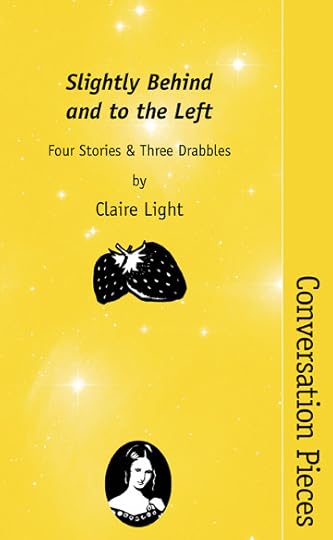 Claire's book, Slightly Behind and to the Left, was included in io9′s Best Speculative Fiction of 2010 list. They describe it as, "A set of powerful short stories and a few ultra-short 'drabbles,'" that "showcases the dark, sometimes satirical imagination of a writer who isn't afraid to take her characters to truly disturbing places." I think I need to read *only* speculative fiction for the first six months of this year—that way I can catch up on all these amazing books by people of color!
Claire's book, Slightly Behind and to the Left, was included in io9′s Best Speculative Fiction of 2010 list. They describe it as, "A set of powerful short stories and a few ultra-short 'drabbles,'" that "showcases the dark, sometimes satirical imagination of a writer who isn't afraid to take her characters to truly disturbing places." I think I need to read *only* speculative fiction for the first six months of this year—that way I can catch up on all these amazing books by people of color!













